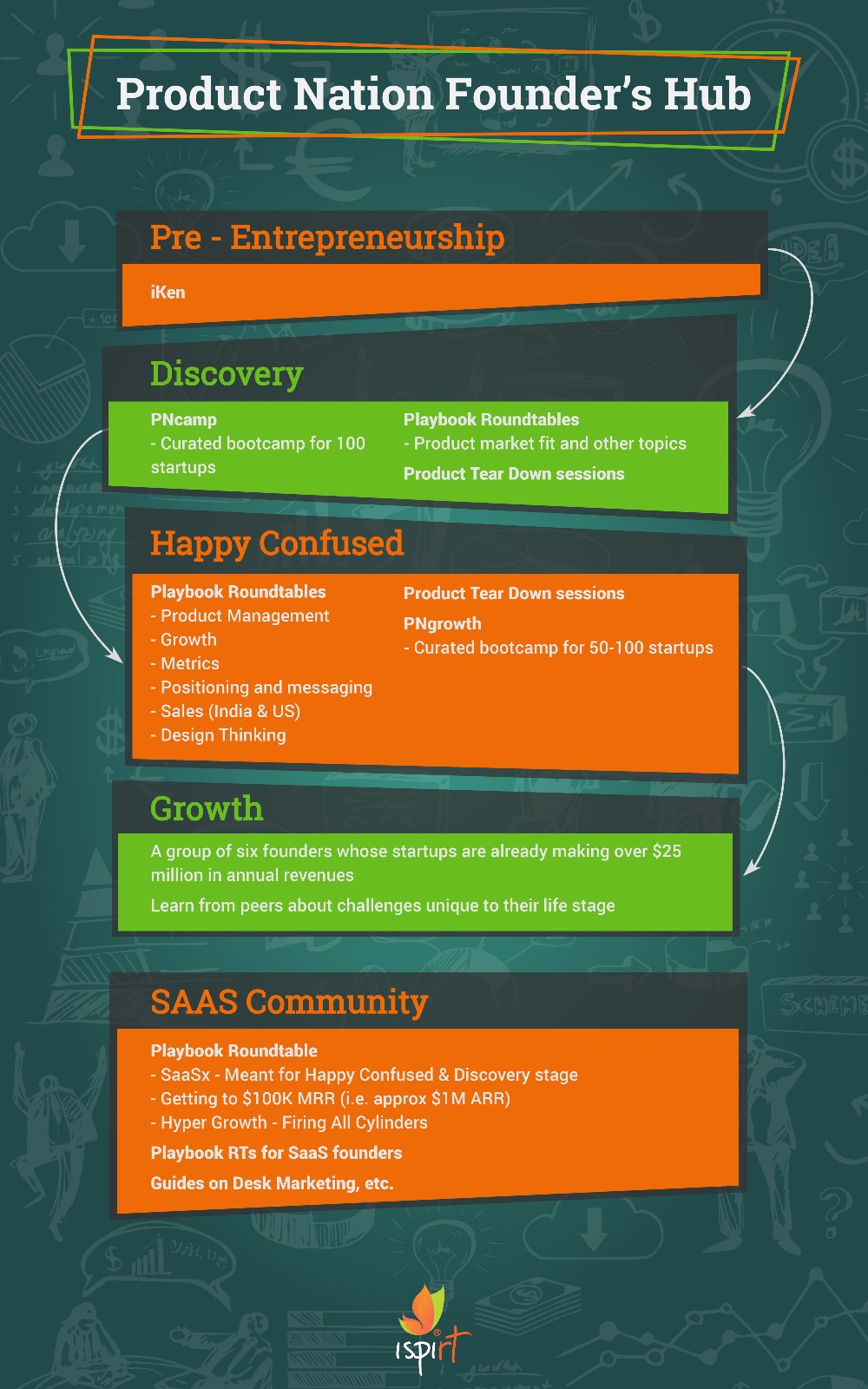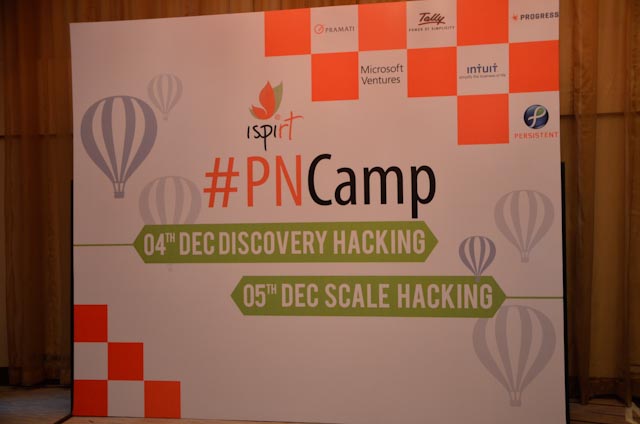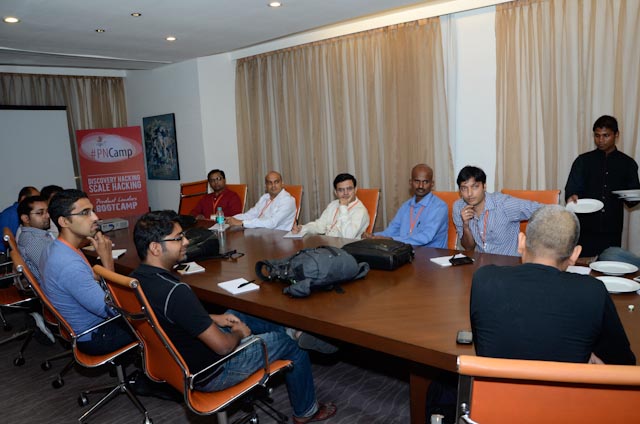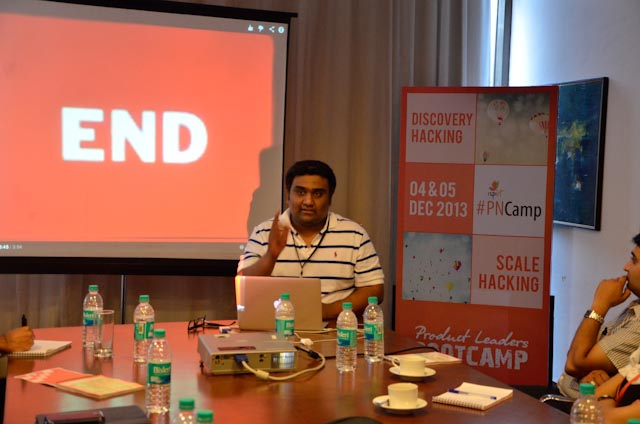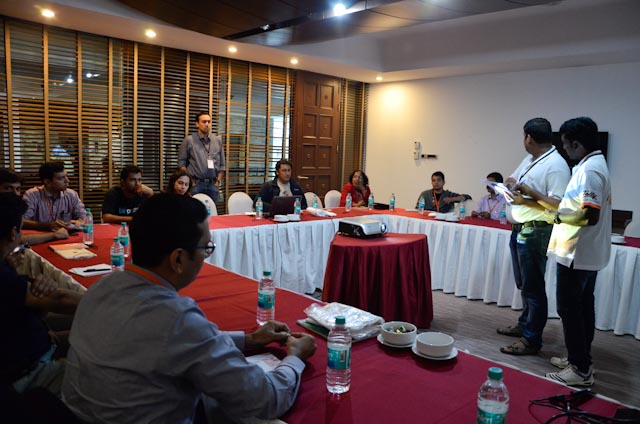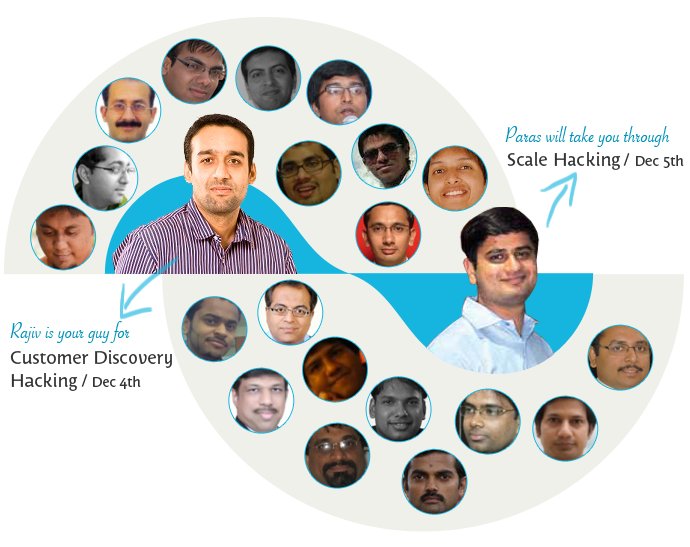Before writing something down about our experience at the recently held Product Nation Camp (PNCamp) product teardown session, I think it would be better to give a short perspective on the overall event from the viewpoint of a fairly reclusive startup in the B2B Saas space.
UrbanPiper has been around for some time; however, for a pretty long period, we haven’t taken part in any SaaS focused events. Well we did, but all of them were in Bangalore. The ones that we attended too, were mostly about networking with hundreds of people milling about and ready to deliver an elevator pitch if you so much as said “hello” to them. Nothing inherently wrong about such a gathering, but if networking isn’t your one-all-be-all purpose, these events stop making sense once you’ve attended one or two of them.
The PNCamp was suggested to us by one of our advisors. Not sure what to expect, the only reason we agreed to go was because we hadn’t attended any event for a decent length of time.
The event turned out to be a delightful experience — spread across a full day (Saturday), it was a small (80-100 people) gathering of focused individuals from a curated list of startups, with an evolved sense of SaaS business and products reflecting a matured outlook towards problem-solving. There was a team (including the founder) from the matured startup – Zenoti, which anchored most of the sessions and did all that they could to share their learning with the rest of us fledgling startups. The day’s events were well regulated to avoid any feeling of drag creeping in, and at all times, it felt like everyone was invested with a great deal of interest and purpose to contribute to each other’s box of learning.
The product teardown was the first session scheduled after a short inaugural talk by the PN team and the guest of honour – Mr. Jay Pullur (Founder of Pramati Technologies).
As it usually is with all things unprepared for, UrbanPiper was invited as the first startup to step up for the teardown. Not having any previous experience of a product teardown, I had no idea what good or bad was in store, and that in a strange way helped me calm down and focus upon telling the audience a good narrative about the UrbanPiper story.
THE TEARDOWN PROCESS
The teardown allows the speaker, a representative of the startup core team, to speak about their startup for 5-10 minutes. As part of the initial presentation, some basic questions are asked by any member of the audience. These questions are usually of the nature to understand a bit better about the proposition of the startup.
Once the presentation is through and the first wave of questions answered, the team from Zenoti takes over. They systematically explored aspects of the technology platform – the finished product, product interfaces, on-boarding process – but it all starts with the “deconstruction” of the website.
For us, the UrbanPiper website (https://urbanpiper.com) had been an effort to put up a decent web presence. Where “decent” merely meant that it was better as a façade than what our competitors had, and it somewhat managed to convey the platform’s proposition.
The following is what we felt manages to tick most of the checkboxes when it came to a Saas-based startup’s website:
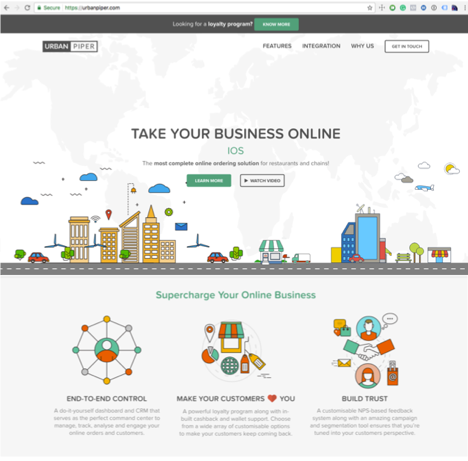
The next 15 minutes was a logical and well-executed act of unravelling the pointlessness of doing things half-baked and half-thought. While the focus was directed towards our website, but it didn’t take much effort to see signs of the same problems when it comes to setting a product vision, selling, pricing, negotiating, fund raising, marketing, etc.
The primary theme of the teardown can be summarized as:
- What have you built and how do you intend to sell it
- Does your website echo the thought-process expressed in #1
- The website teardown focuses on:
- The messaging around the primary proposition of your product/platform
- The explanation of how your target audience can use your platform
- The long-tail value of using your product/platform
- How has your platform made a difference for the merchants/clients who have been using it for quite some time
TAKEAWAYS
As ominous as a “teardown” sounds, the first thing to know is that it’s a very friendly event. Instead of feeling defensive about getting “exposed”, it is best to view the teardown as a get together of well-informed friends who point out the gaps in your plan to save you the blushes in the future. Think of the last time when a friend of yours pointed out that your fly is open – that probably best sums up the purpose of the teardown.
Another important aspect is the quality of feedback–you have some of the best minds, who have most certainly been-there-done-that, offering you their undivided attention so as to offer you advice which is best suited for you.
For us, the key takeaways boiled down to:
- Narrow down the area UrbanPiper wants to focus on. Instead of positioning the platform for every merchant, it would make it much easier to scale if we simply focused on being the best in one domain, and then decide to pursue another one.
- Overhaul the website to focus on simple messaging instead of using buzzwords, which would most likely make no sense to even the people you’d like to sell to.
- Break down the journey a merchant would have from not using our platform to the benefits of signing up and thereafter.
- Last, but certainly not the least, build out the product and the website with a focus on selling globally. This involves a change in setting out a more global plan, but the start needs to be with the website–which should reflect in no uncertain terms the intent to cater to a global audience.
CURRENT SITUATION
It’s been a week since the PNCamp, but we have already finished work on the first iteration of making some much needed changes to our website. This iteration is by no means a finished product, but it certainly embraces some of the direction that we should be taking with our platform’s positioning.
It gives me a lot of pleasure to unveil the new look of our website–
While this is just our first iteration, there are some key elements that we wanted to address:
- Focus the messaging around the domain that works for us.
- Take the visitor through various parts of the platform in a gradual and relevant manner – the features should unravel themselves as an easy to understand narrative.
- Use styling which gives the site a crisp look and feel, such as to measure up to the expectations of a global platform.
- Add a blog (https://urbanpiper.com/blog) section to write about the platform and make a visitor find out more. Not to mention, reap the benefits of better SEO.
- Prominently showcase a video which ideally has a current merchant talking about the platform.
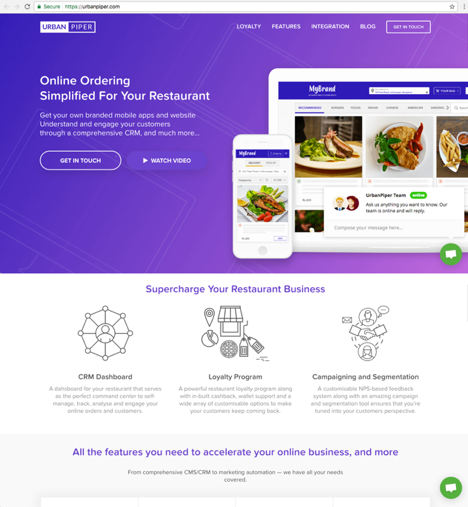
THE WAY FORWARD
We have just begun an interesting journey of making UrbanPiper relevant for the next phase of growth. During the PNCamp, Sudheer (founder of Zenoti) had suggested that I read a book – Crossing the chasm (Geoffrey Moore). I’ve just read the first chapter of the book, and already it feels like there’s going to be lots to learn from it.
Whatever be in store, it will surely help us rediscover ourselves at an important juncture of growth for UrbanPiper.
If I were to pause for a moment and reflect upon the events and the actions we’ve taken, it’s not like there was a grand revelation or something. Working in startups, we all carry a bunch of latent thoughts. However, in the everyday hectic operations of running a startup, we often lose “perspective”. If we’re lucky, then we have some good friends from other startups with whom we hang out regularly, and exchange notes, which in-turn helps us gain some of the lost “perspective”. But then, having friends from startups which have tread a path similar to yours, call for rather long odds.
Events are usually good to meet an eclectic group of individuals from the startup world, but then, most of them are primarily about networking, and soon lose value for all the effort that needs to be put in for attending them. And then, we just become lazy, letting our latent thoughts remain buried, while we continue to endure every aspect of a tunnel-vision syndrome.
For what it’s worth, the Product Nation Camp, was certainly a refreshing take on the idea of a startup conference – or rather, unconference. You’ve got a room full of smart people, doing smart things, and wanting to help you see things differently – to help you gain some of your lost perspective.
Guest Post by Anirban Majumdar @ urbanpiper.com



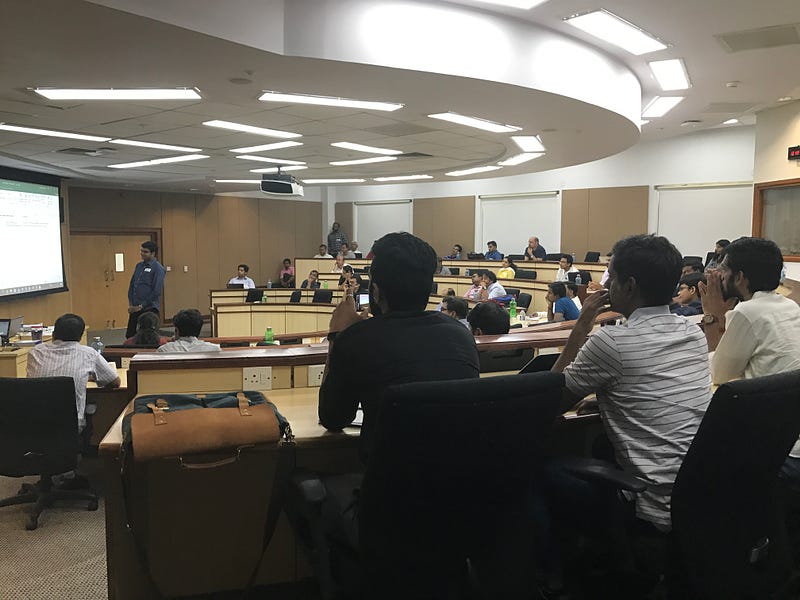
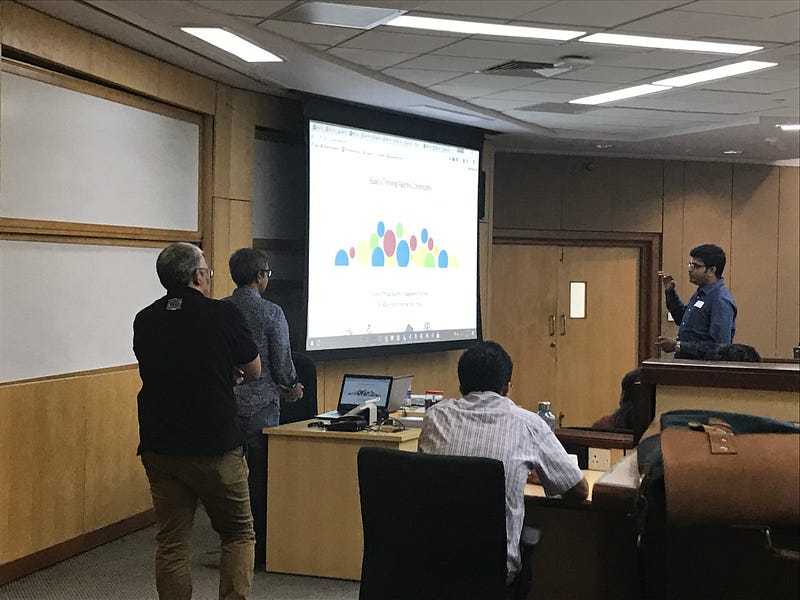
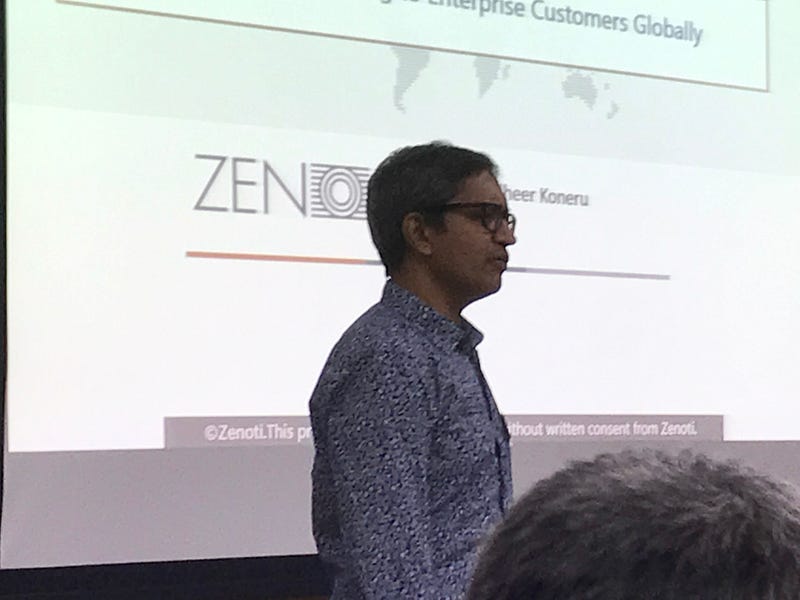


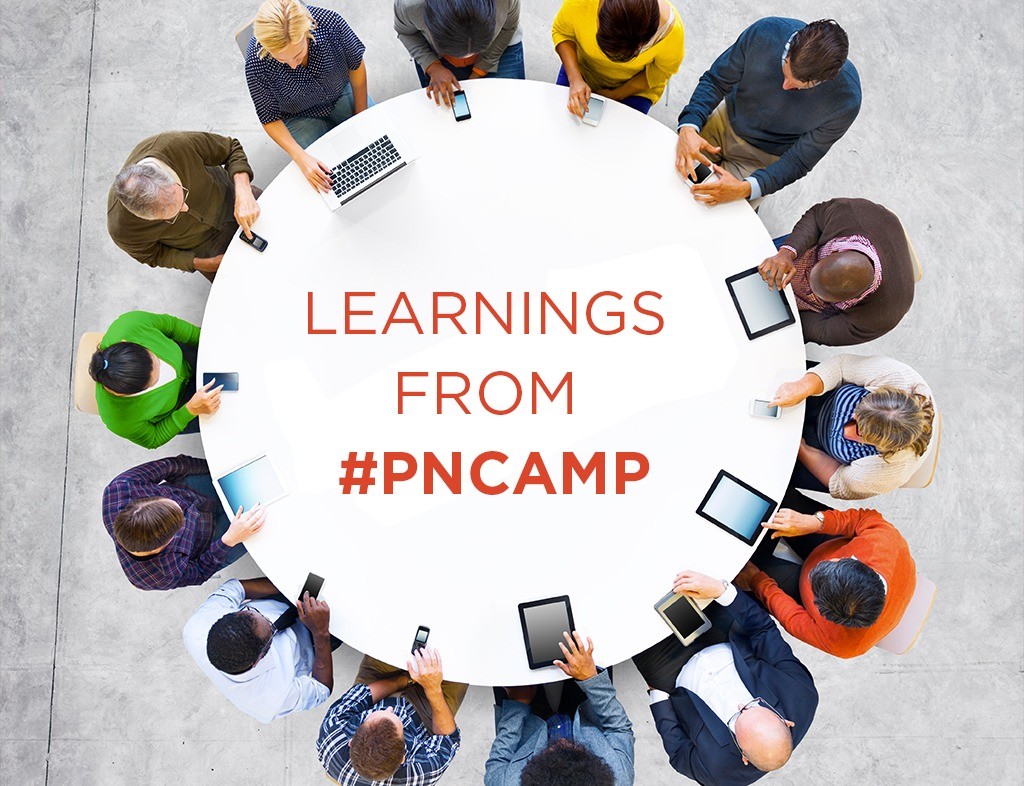 The B2B track consisted of a mix of talks by accomplished folks —
The B2B track consisted of a mix of talks by accomplished folks — 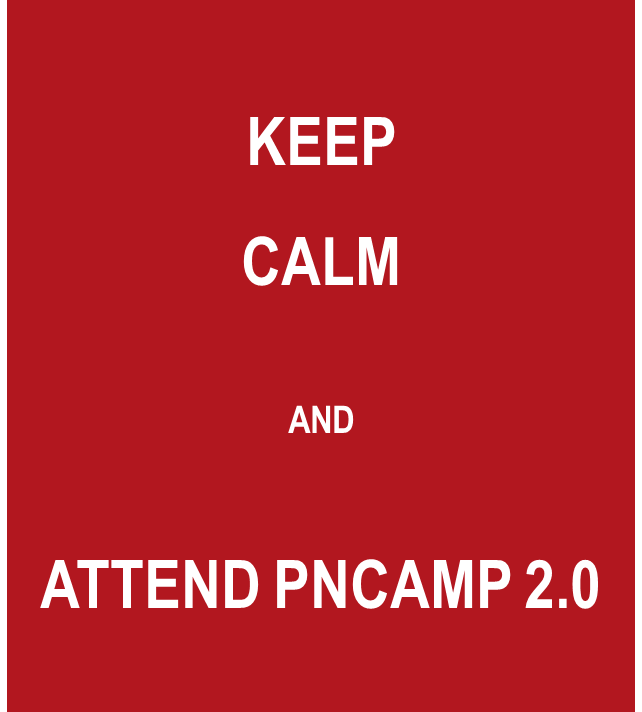
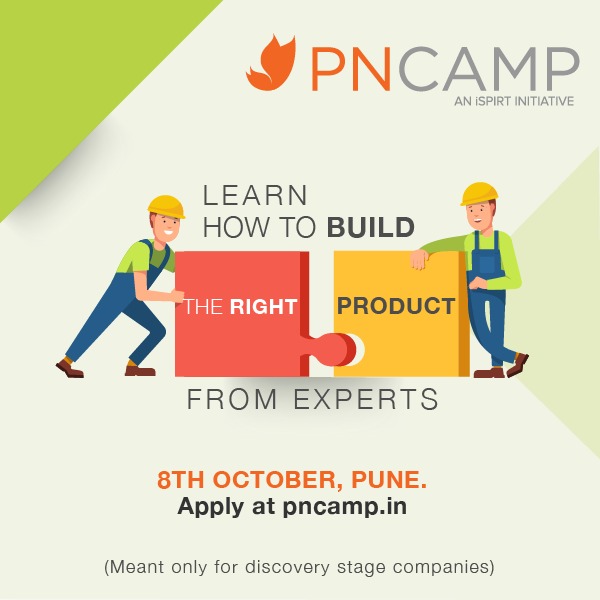 PNCamp in pune is your grand opportunity to get candid feedback on your product and its marketing. If you are a startup with a prototype or product at an early stage with few users/customers but struggling to get further traction, then PNCamp is a great place where you could get an opportunity to showcase your product and seek feedback, inputs and suggestions on specific to your product. At PNCamp, experts will take product teardown sessions on following aspects.
PNCamp in pune is your grand opportunity to get candid feedback on your product and its marketing. If you are a startup with a prototype or product at an early stage with few users/customers but struggling to get further traction, then PNCamp is a great place where you could get an opportunity to showcase your product and seek feedback, inputs and suggestions on specific to your product. At PNCamp, experts will take product teardown sessions on following aspects.